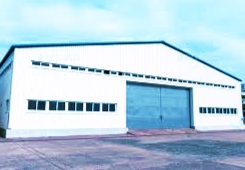In this article we will dis about what is a warehouse. We will learn all the important things related to the warehouse.
Table of Contents
Warehouse Introduction
A warehouse can be defined as a building that stores goods. Installed by manufacturers, importers, exporters, wholesalers, shipping companies, and customs departments to store goods.
See the below image of a warehouse.

These are large, simple buildings in industrial areas on the outskirts of cities, towns, or villages. There is a parking lot for trucks to load and unload. In some cases, cargo is handled directly from railways, airports and seaports. They usually have cranes and forklifts to move the goods, most of the goods are placed on ISO standard pallets then loaded onto pallet racks.
Stored goods may include raw materials, packaging materials, spare parts, components or finished products related to agriculture, and manufacturing.
Features of a Warehouse
- The main task of the warehousing industry is the storage of goods. Additional goods not needed immediately can be stored in the warehouse for later use. These additional products can be consumed or delivered according to customer needs.
- Warehouses emulate an integral role in the process of price stabilization. This is achieved by innovating how we use our time through warehousing. You can avoid the risk of product prices falling during mass shipments and the risk of product prices rising during off-seasons.
- When goods are stored in warehouses, they are exposed to various risks in the form of theft, breakage, exploration and fire. Camp is designed to underestimate these risks.
- Warranties apply when goods are stored at Wavehouses. Therefore, warehouse managers must properly manage their goods and insure them against various risks. The warehouse manager is responsible to the owner of the goods for any lost or damaged goods.
- Warehousing helps businessmen as a source of funding to run their business operations. Loans can be made by the shopkeeper for goods kept by the owner. Goods act as security for the sokoban. Banks and other financial institutions also offer loans against warehouse receipts. With modern technology, storage facilities also include packing, processing and sorting of goods. Goods can be loaded in the proper size according to the owner’s instructions.
Benefits of Warehouse
- Storage helps meet urgent needs.
- Warehouses help keep goods safe.
- Warehousing paves the way for other services.
- Preservation helps prevent food from spoiling. Warehousing saves businesses a lot of money.
Disadvantages of Warehouse
- Expensive to build.
- It is difficult to construct in the city.
- Warehouses far from cities are less flexible.
- Administrative issues
- Lack of public storage space.
